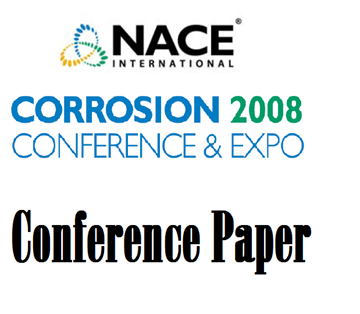Search
10352 Chloride SCC of Stainless Steel Cooler Coils in Open Recirculating Cooling Water
Also Purchased
08174 Unusual Corrosion Failures of Stainless Steel in Low Chloride Waters
Product Number:
51300-08174-SG
ISBN:
08174 2008 CP
Publication Date:
2008
$20.00
10287 Critical Stress Corrosion Cracking Potentials of Stainless Steels in Dilute Chloride Solutions
Product Number:
51300-10287-SG
ISBN:
10287 2010 CP
Publication Date:
2010
$20.00
00332 Recent Trends In Cooling Water lnhibitors
Product Number:
51300-00332-SG
ISBN:
00332 2000 CP
$20.00




